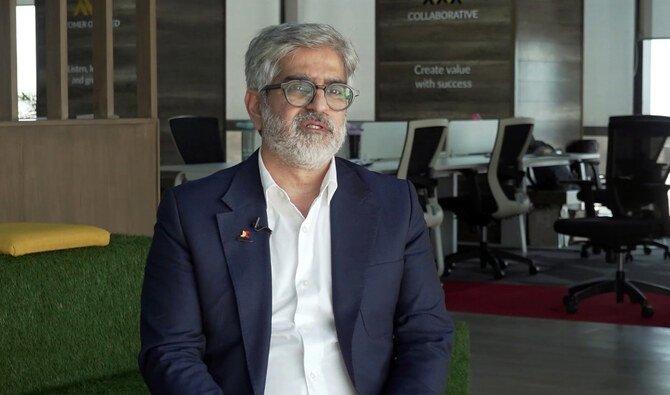ISLAMABAD: The federal government is running an awareness campaign in collaboration with the National Disaster Management Authority (NDMA) amid an ongoing heat wave this month, state-run media reported as the Pakistan Meteorological Department predicted day-time temperatures to “remain above normal” in June also.
Pakistan has been experiencing severe climatic changes due to global warming in recent years which has led to frequent heat waves, untimely rains and droughts.
On May 21, authorities had urged people to stay indoors ahead of a heat wave which is expected to last until the end of the month. An estimated 18 million students are also unable to attend classes because Pakistan’s most populous province Punjab ordered shutting down schools this month due to rising temperatures.
Chief Meteorologist Dr. Sardar Sarfaraz has also warned that the heat wave would “intensify” from May 23 onwards.
“Ministry of Climate Change and the NDMA are spreading mass awareness for the public through adopting preventive measures and to reduce its impacts through issuing adviseries, public service messages, ring back tone and awareness campaigns through television, radio and social media platforms,” Radio Pakistan reported.
Addressing a press conference, the Prime Minister’s Coordinator on Climate Change Romina Khurshid Alam said 26 districts of the country were in the grips of a heat wave since May 21.
Alam said the first wave would last till May 30, the second would begin from June 7-8 and the third one in the last week of June.
May and June were recorded as the “hottest and driest” with higher monthly average temperatures, she added, appealing to the masses, especially children and elderly, to adopt preventive measures.
She noted that the severity of heat waves had increased rapidly during the past few months with 13 districts of Sindh, nine of Punjab and four districts of Balochistan experiencing “severe heat.”
“Global warming is impacting the entire world, and we are seeing its effects in the form of these frequent and intense heat waves,” the official said, blaming deforestation and unsustainable environmental practices for the harsh weather conditions.
“Public awareness campaigns through various media outlets are ongoing to educate people on the health risks and preventive measures.”
Alam said heat waves were accelerating the process of glacier melting and the risk of forest fires, advising the public to remain cautious in national parks, avoid discarding cigarette butts, leave vehicle windows slightly open, and ensure access to drinking water.
“NO RESPITE”
The NDMA is also urging people to stay hydrated and wear light-colored clothing to minimize the effects of heat and farmers to carry out agricultural activities keeping in mind the prevalent weather conditions.
Met Department data showed Jacobabad, Dadu and Mohenjo Daro as the hottest places across the country, with temperature in these cities surging from 49°C on Wednesday to 50°C on Thursday.
“The cities of Jacobabad, Dadu and Mohenjo Daro are known to have 50°C in May. Jacobabad had 52°C in April in 2022,” the chief meteorologist said.
“Harsh weather is likely to persist at least till June 3. There is no possibility for respite, at least for Sindh. The heat spell may break in parts of Punjab but that, too, after June 4.”
Climate change-induced extreme heat can cause illnesses such as heat cramps, heat exhaustion, heatstroke, and hyperthermia. It can make certain chronic conditions worse, including cardiovascular, respiratory, and cerebrovascular disease and diabetes-related conditions, and can also result in acute incidents, such as hospitalizations due to strokes or renal disease.
According to the Global Climate Risk Index, nearly 10,000 Pakistanis have died while the country has suffered economic losses worth $3.8 billion due to climate change impacts between 1999 and 2018. A deadly heat wave that hit Pakistan’s largest city of Karachi, the capital of Sindh, claimed 120 lives in 2015.
In 2022, torrential monsoon rains triggered the most devastating floods in Pakistan’s history, killing around 1,700 people and affecting over 33 million, a staggering number close to the population of Canada. Millions of homes, tens of thousands of schools and thousands of kilometers of roads and railways are yet to be rebuilt.
Government runs awareness campaign as Pakistan in grips of ‘severe’ heat wave
https://arab.news/5aabb
Government runs awareness campaign as Pakistan in grips of ‘severe’ heat wave

- First wave to last till May 30, second to begin from June 7-8 followed by third one in last week of June
- Heat wave to persist in Sindh province until June 3, to break in Punjab after June 4, Met office says



















